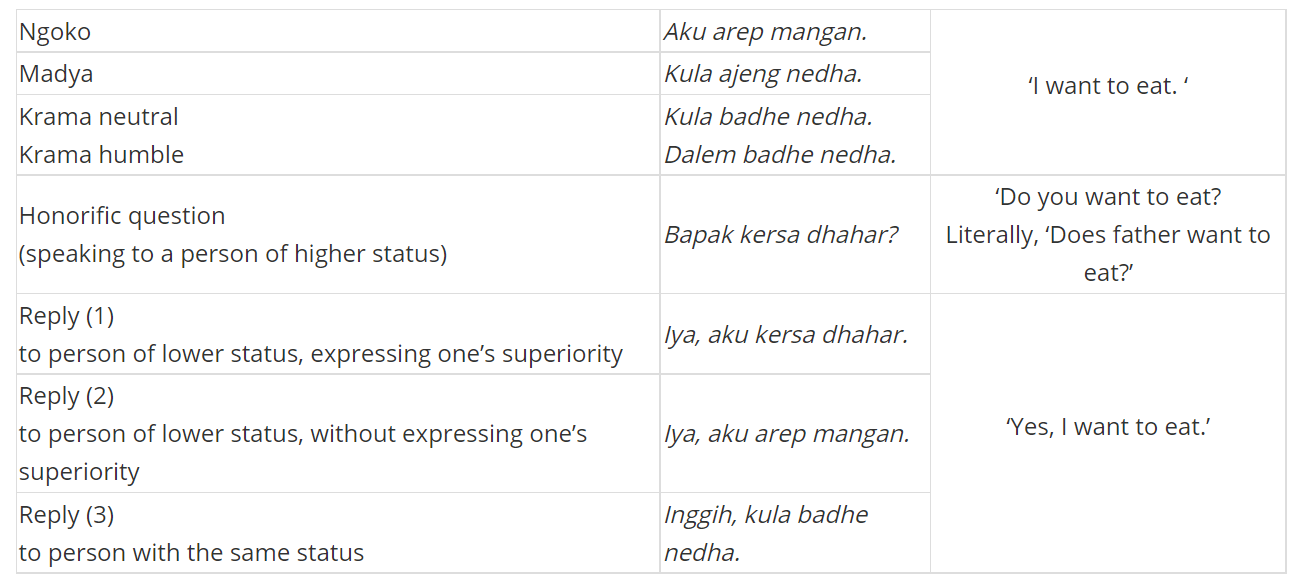Javanese
Language Registers
Javanese has different honorific speech levels or registers. The use of these registers depends on the social status, age, and other characteristics of the speaker and the receiver. To master these registers, one must not only learn the lexicons for each but the underlying culture and social hierarchy that runs throughout Javanese society.
There are generally three recognized registers in Javanese, the “low” register, Ngoko, pronounced Know-ko” middle/neutral, Madya, pronounced “Mad-yo,” and the “high” register, Krama (pronounced Kro-mo). These registers share the same grammatical rules but have different lexicons. Madya is not a standardized register, so I will not cover it here. Within the two standard registers of ngoko and krama, there are also ngoko alus and krama alus, which are a more respectful form which draw from a specific lexicon called krama inggil/krama andhap. In general, most words have equivalents in each register. Grammar, from a conceptual perspective is the same throughout, but the affixes differ for each (for example -e/ne showing possession in Ngoko and -ipun/nipun in Krama). Some words, however, such as wit, meaning tree, are the same in each register.
| Register | Register subdivision | Situational Usage | Lexicon |
| Krama
|
Krama Alus | Addressing older people or less familiar people or in formal situations like weddings and funerals. | For nouns, pronouns, and verbs: Krama Inggil/Andhap* and Krama if no KI/KA equivalent
For all other words: Krama |
| Krama | Krama | Addressing people of the same age. | Krama |
| Ngoko | Ngoko Alus | Showing respect to older folk who are already familiar, such as parents, as well as those of the same age but not yet familiar. | For nouns, pronouns, and verbs Krama Inggil/Andhap and Ngoko if no KI/KA equivalent
For all other words: Ngoko |
| Ngoko | Ngoko | Talking to people of the same age or younger who are already familiar such as family and good friends | Ngoko |
Table adapted from Buku Sinau Basa Jawa 1 – Wisma Bahasa
*Krama Inggil: When referring to oneself
*Krama Andhap: When referring to others
Example:
| Ngoko | Krama | Krama Inggil | Krama Alus | English | Indonesian |
| Takon | Taken | Mundhut Priska | Nyuwun priksa | Ask | Tanya |
This example below from Mustgo illustrates these differences and the nuances involved in the different registers. You can see how different situations require different language registers.

Javanese also possesses different dialects, but these should not be confused with registers; the Javanese spoken in Yogyakarta/Solo, the former of which is considered Java’s cultural capital, is viewed as the “standard” form, while other parts of Java, including cities such as Surabaya, Malang, and Banyuwangi, have their own as well. These dialects generally differ in their vocabulary.

